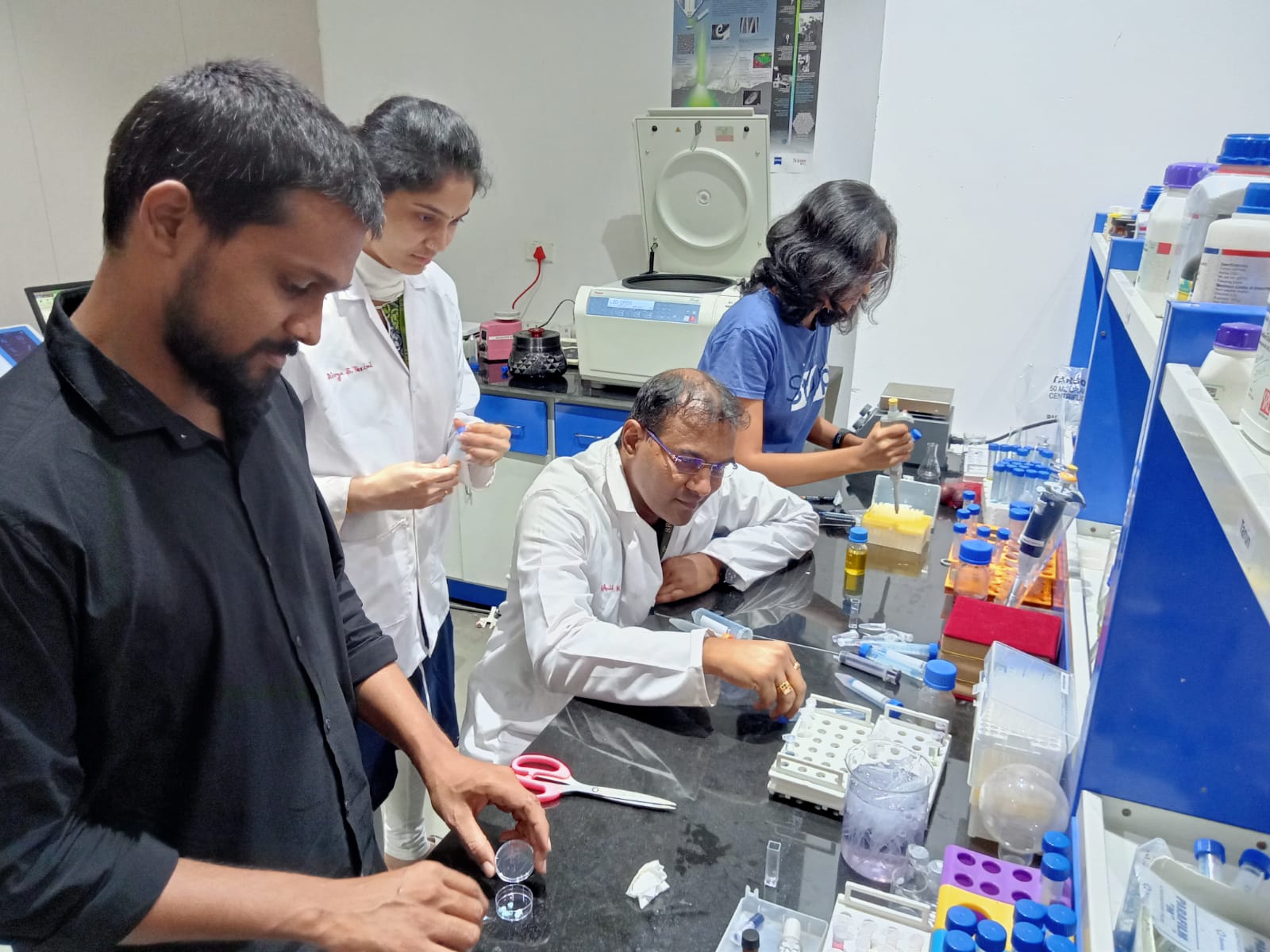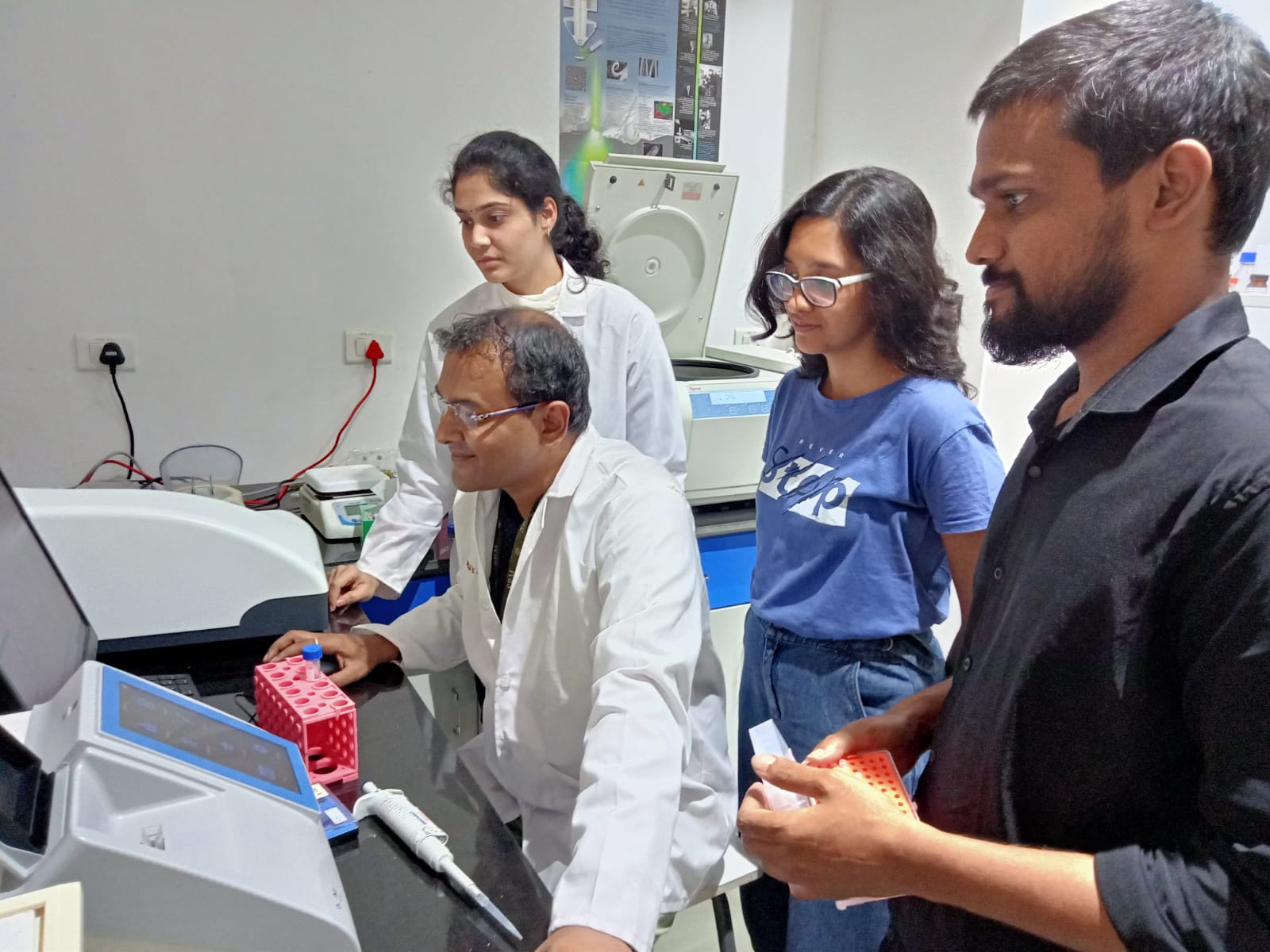 Dr Anil K Suresh, Associate Professor, Department of Biological Sciences, and his team from SRM University-AP recently developed a see-through transparent (with 85% above transmittance) biotemplate which they derived from the fish scale wastes to substitute the extensive usage of eco-unfriendly disposal plastic cuvettes for UV-Visible Spectroscopy measurements in the spectrum of 350-900 nm. UV-Vis spectroscopy is a versatile analytical tool used to examine the nature of various synthetic, biological and clinical molecules for pharmaceutical and environmental applications. The team members demonstrated the practical on-biotemplate analysis of diverse analytes such as DNA, proteins, nanoparticles, organic dyes, bacteria, BSA assay and dye-degradations.
Dr Anil K Suresh, Associate Professor, Department of Biological Sciences, and his team from SRM University-AP recently developed a see-through transparent (with 85% above transmittance) biotemplate which they derived from the fish scale wastes to substitute the extensive usage of eco-unfriendly disposal plastic cuvettes for UV-Visible Spectroscopy measurements in the spectrum of 350-900 nm. UV-Vis spectroscopy is a versatile analytical tool used to examine the nature of various synthetic, biological and clinical molecules for pharmaceutical and environmental applications. The team members demonstrated the practical on-biotemplate analysis of diverse analytes such as DNA, proteins, nanoparticles, organic dyes, bacteria, BSA assay and dye-degradations.
Dr Anil claims that the large-scale development of the biotemplate can resolve several issues in performing sustainable research; for instance, generates huge demand for fish scales as a resource stratagem otherwise causative of foul smell and disease propagation when discarded. Second, the use of non-biodegradable plastic cuvettes can be minimized for routine analytics and third, unlike plastic cuvettes that demand 500-fold analyte our biotemplate allows the analysis at a very low 10 microlitre volumes, making it feasible to analyse expensive, rare, and high-risk analytes. Dr Anil K Suresh owns the copyrights for this pathbreaking invention by being granted an Indian patent. This work is accepted for publication in the prestigious Journal of “Green Chemistry” by the Royal Society of Chemistry. Read the full paper here.
Adding to the mechanistic, Dr Anil said, “naturally acquired droplet retaining ability for over 30 minutes against gravity while vertically positioning the biotemplate supported such ultra-low volume measurements and monitoring of chemical reactions in-situ”. Interestingly, the same ability allows the retrieval of the analytes after completion of the analysis, crucial for precious analytes. Dr Anil says the best part is that the transparent biotemplate can be discarded back into the environment post-usage without any hesitation as the biotemplate is completely biodegradable.

Further, the research group demonstrated ease in large-scale production by generating ~3000 bio templates at an affordable price. Dr Anil emphasised that this low-cost, plastic-free, use-and-throw biodegradable transparent biotemplate stemmed from food waste as a bioresource stratagem has huge potential in routine scientific and pharma UV-Vis analytics and he will very soon bring this product to the scientific community as a sustainable science solution.
Dr Anil Suresh concluded that this breakthrough conception would not have been possible without the rigorous efforts of his team and the continuous support from the university management, who are also encouraging and willing to support Dr Anil to establish his own start-up within the University. Dr Anil Suresh thanked his group members Ms Divya Parimi, Mr Chandra Bhatt, Mr Tharun Bollu and Ms Madhura, his collaborators Dr Malli and Mr Jacob. Dr Anil’s team especially thanked the management of SRM University-AP; the President Dr P. Sathyanarayanan for his generous support, Prof D Narayana Rao, Pro-Vice-Chancellor for his constant untiring encouragement, motivation and support in all his scientific endeavours, and the Vice-Chancellor Prof V S Rao for his kind support.

